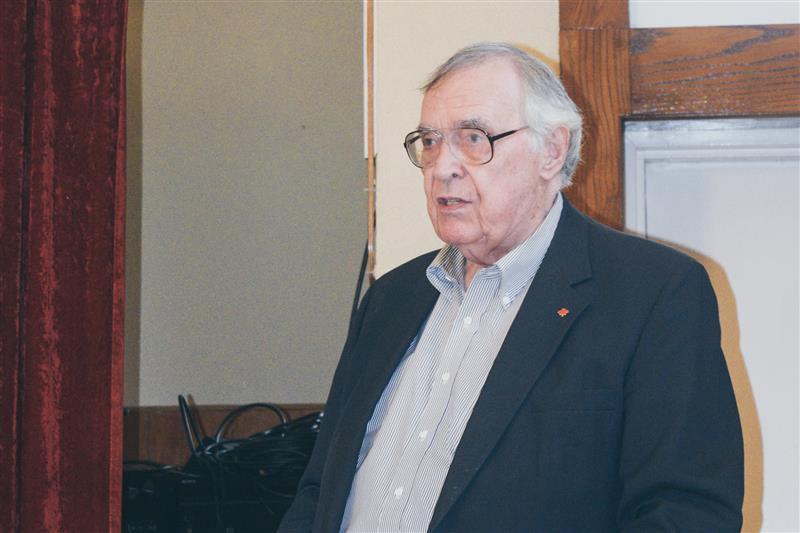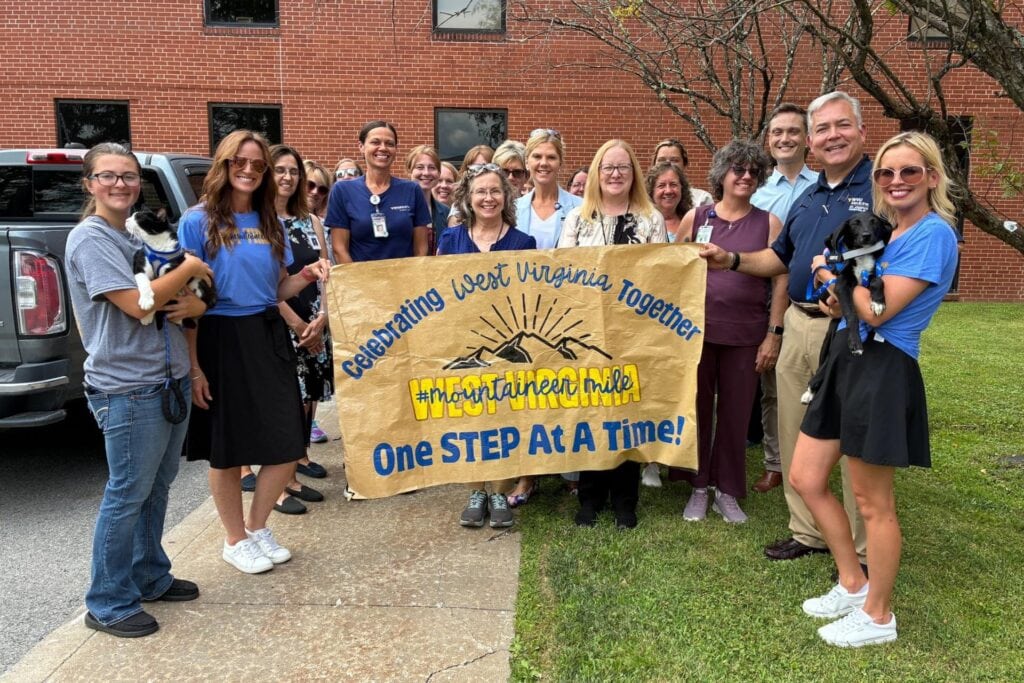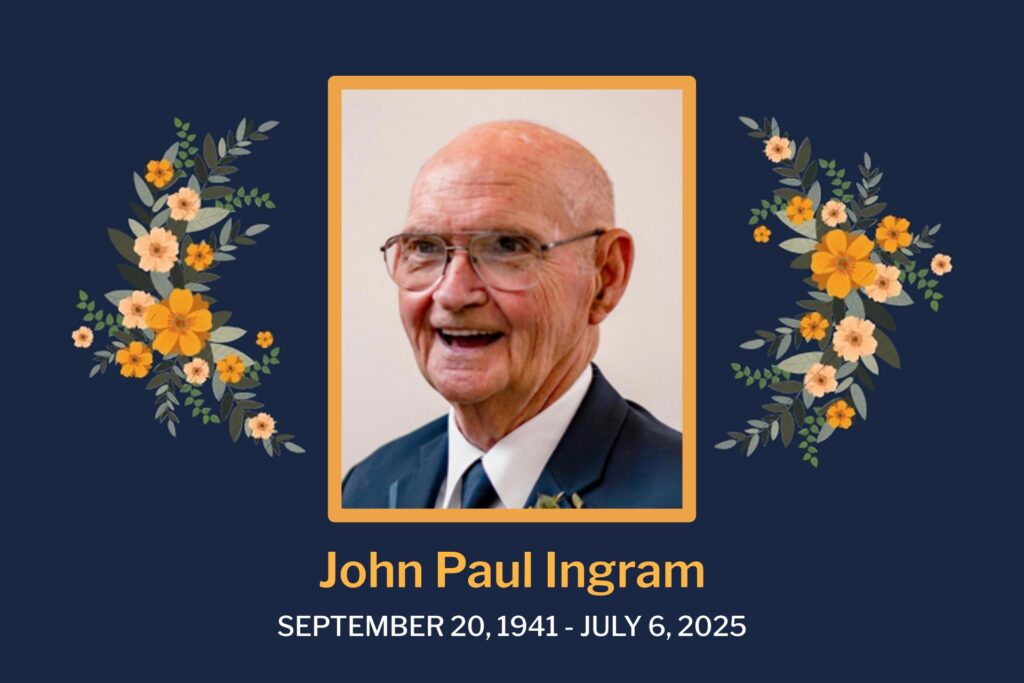BUCKHANNON – A self-proclaimed “ideapreneur” spoke about the realities of climate change Saturday during the annual meeting of the Mountain Lakes Preservation Alliance.
Allan Tweddle told those gathered at the Opportunity House on Cleveland Avenue that science is a fascinating, apolitical world of knowledge.
“The laws of physics cannot be repealed, only explored and better understood,” Tweddle said. “Our growth as a species on this planet is because of our increasing understanding of science and the physical world around us.”
Tweddle is the founder of Composite Transport Technologies, Inc., a company that wants to drastically reduce the U.S.’s carbon footprint by 2020. They have locations in West Virginia and Ontario, Canada.
Tweddle said the climate change crisis has been written about by scientists since the 1800s.
“This is not a recent idea or subject,” he said. “Some of the most definitive work was written in the 1880s by an engineer in London who was dealing with the horrors of coal-fired smog in London. It was subsequently studied by a scientist in Sweden who confirmed what that engineer had predicted – that we would be impacting the whole global balance of energy in putting too much carbon dioxide into the upper atmosphere – that was forecast in 1886, so it has been understood for that long.”
Tweddle applauded the work of the Mountain Lakes Preservation Alliance, saying he does not believe anyone has the right to poison the air or water – at all. He said for 50 years, he has been dealing with air quality challenges in Canada and in California.
He said he feels dealing with climate change is an economic opportunity.
“We must correct this crisis – we have no choice whatsoever – or we won’t survive,” Tweddle warned. “Our children won’t survive – so we can address this and fix it.”
He said there is also a moral responsibility to combat climate change.
“We just cannot keep poisoning our planet. It is foolish and unnecessary,” he said.
Tweddle said in his own company, Aerospace Composites Technologies, is committed to achieving a carbon footprint of zero in a manufacturing company.
“Our company, here in West Virginia, has developed a system to go on every Boeing and Airbus aircraft to reduce their carbon footprint,” he said. “Our market is the world’s airlines. We have already shared our development with a couple of airlines who are impressed with it and waiting to get it, but we have to go through some approvals process and raise a second round of capital which is a challenge.
“The most important reason I am committed to this is our children,” Tweddle added. “I have grandchildren, and I am just scared to death about what their life may be long after I am gone if we don’t fix this problem.”
Tweddle said it is important not just to talk about the change, but to engage in an action plan.
“We need to press the policy makers, the legislators, to embrace the greenhouse gas mitigation, which will create new jobs for displaced miners,” Tweddle said. “There is an organization in Huntington that is training miners to be solar technicians. That is very feasible.”
He said the Chinese symbol for crisis shows two realities – danger and opportunity.
“This is how the Chinese view a crisis. Our challenge is that our climate (change) deniers in this state especially, are in power, Tweddle said. “However, the world of finance is transitioning away from any and all sources of greenhouse gases. The banks have stopped lending to the coal industry, and the financial investment world will not invest into coal plants anymore, in this country and in Europe and in most of the world – not everywhere.”
Tweddle showed some indicators of climate disruption including photos of 130 Inuit villages along the coast of Alaska that must be relocated because the ocean is rising.
“To move the villages closer inland will cost an average of $30 million each, and you and I are going to pick up that tab,” he said. “It is estimated that Newport News, Virginia, will be completely underwater by 2050 if climate change is not fixed.”
He said that 2014 logged an all-time high mean – or average – temperature until 2016, which lost its record to 2018.
“The mean temperature is continuing to climb,” Tweddle said, showing a graph. “These are scientific temperature measurements of the average temperature of the globe for the last 20,000 years. Look at what has happened in the last 20 years (which shows a steep upgrade). This is hard data – not opinion. This is the famous hockey-stick curve as described by Professor Mann of Penn State. This is data – fact – not opinion.”
Tweddle said he believes, however, there is still hope.
“In my native Canada, there are three times as many jobs in solar energy as there are in gas, coal and oil,” Tweddle said. “In the U.S., there are two times as many jobs in solar energy as there is in gas, coal and oil combined. This is an economic opportunity to fix this serious crisis by retraining miners and others to solar energy and start switching to solar.”
Tweddle said it is no longer economically viable to burn coal because solar energy is now cheaper.
“The price of solar and wind is continuing to drop,” he said. “Solar energy around the world is growing faster than the use of cellphones. The energy industry has experienced a 9 percent growth in renewables in 2018, while the fossil energy has dropped. Even the oil-rich countries of the (United Arab) Emirates and Dubai (the largest city within the UAE) are building solar power plants.”
Tweddle said solar energy was originally developed in the United States but is now being embraced all over the world.
“Roofing materials are now being made as solar cells. The future is that you don’t put solar cells on your roof, you make your roof out of solar cells,” he said. “There are now windows you can see through that are solar cells – you could build a high rise building whose south, east and west walls are solar cell windows. The innovation that is going on is really remarkable and very exciting,” he said. “Scotland is now getting 100 percent of its power from wind. They are exporting wind-generated power to England and Europe. It shows what can be done.
“One of the things we can start doing is really getting serious about solar energy,” he continued. “In France, there are roads paved with solar cells. Engineers have estimated if we pave our entire interstate system with solar cells, we could generate 150 percent of all the power our country needs today. It won’t happen overnight. But it is an innovation that is happening to address climate change. These are glass – didn’t we have a glass industry in West Virginia?”
Solar cells convert the sun’s photons or light energy into electricity.
Tweddle said solutions to climate change will generate jobs.
“The answers are job-creating, positive solutions and yes, they are disruptive,” he said. “Retraining miners is going to be necessary, but the pay for solar technicians and miners is comparable.”
He asked that everyone help by reviewing their energy consumption profile.
“There are apps online to check your energy profile. Get a fuel-efficient car. We have a great potential and a great future in attacking this problem,” Tweddle said.
The Mountain Lakes Preservation Alliance is a multi-county grassroots group that promotes a transition away from fossil to renewable energy and believes that a sustainable economy is within reach. They meet every two weeks.
Additional information about MLPA is available online at www.mountainlakespreservation.org.














